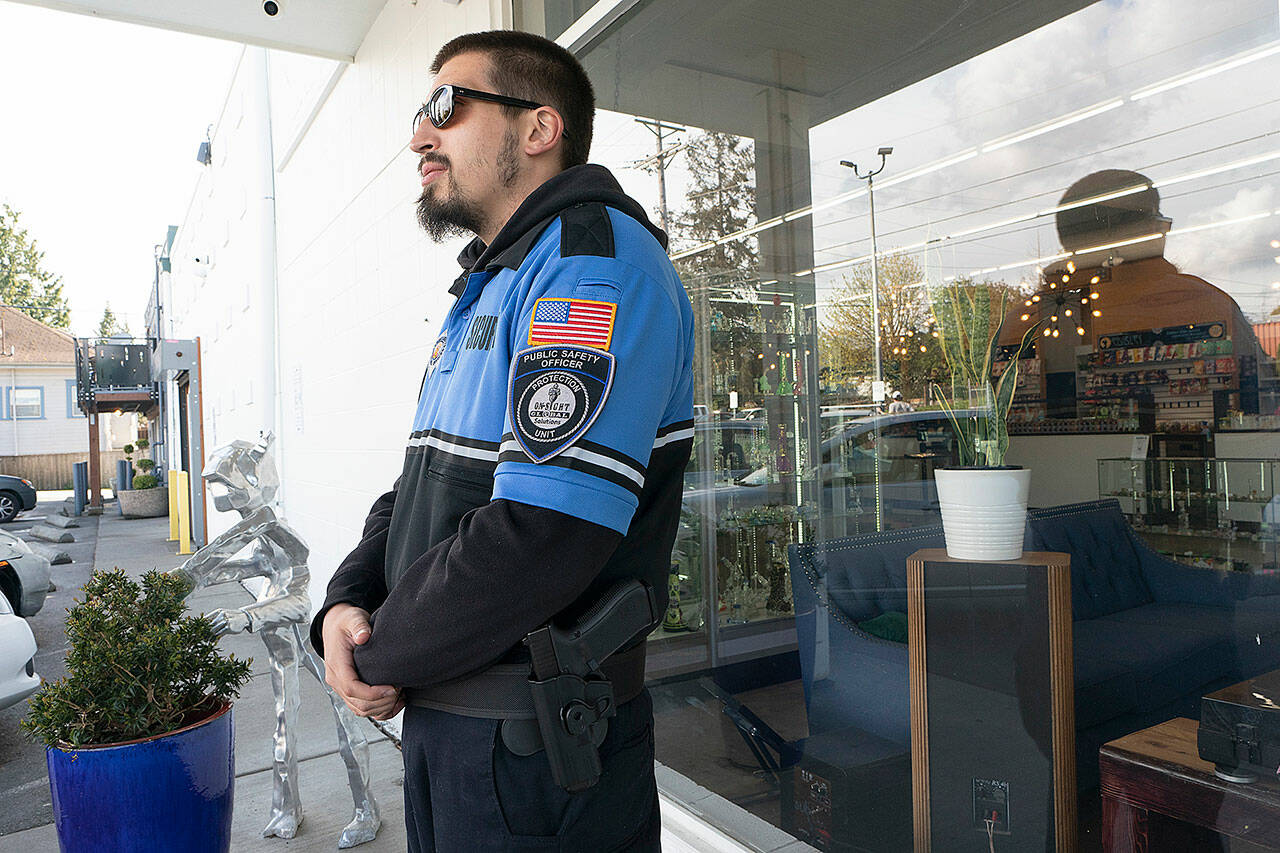By The Herald Editorial Board
Divided government — as we will see for at least the next two years beginning in January with Democrats remaining in control of the White House and the Senate and Republicans with a slim majority in the House — is the glass half-empty yet half-full of legislative action.
The half-full view is that little of what the majority of the public would oppose can pass. The half-empty outlook is that little of what most in the public supports can become law. Prepare for seeing more of the word “gridlock” in news coverage.
So, Democrats in Congress are hoping to use what’s dubbed the “lame-duck session” to take advantage of the majority they have for the remaining six weeks of flight and wing out a handful of legislative wins.
Among some possibilities that are worthy of passage: reforms to how electoral college votes for presidential elections are acknowledge by Congress, removing any doubt of interference by conniving forces; an increase or removal of the federal debt limit to head off the possibility of one party using default or its threat as leverage for legislation; continued support for Ukraine in its defense against Russia’s invasion; an extension of an expanded Child Tax Credit, which until it expired earlier this year made significant headway against childhood poverty; and codifying the Supreme Court’s 2015 decision guaranteeing the right to same-sex marriage, which in the view of at least one court justice should have been tossed out with Roe v. Wade.
One more piece of legislation could make a significant difference in terms of public safety and a reduction in crime, especially in the 21 states — including Washington state — that have legalized the retail sale of marijuana.
States, such as Washington, while benefiting from the additional tax revenue provided by cannabis sales, also have spent significant time and financial resources to build a system of oversight and regulation intended to starve the black market while supporting legal sales.
The problem for those retail markets as well as cannabis growers and processors is that while individual states recognize their right to do business, the federal government still considers cannabis a Schedule I drug under the Controlled Substance Act — no different than heroin and LSD — which means banks and other financial services providers can’t do business with any business that grows, processes or sells marijuana.
And without the ability to use debit and credit cards, transfer funds electronically for payroll and other expenses or even so much as use a business checking account, retail shops and the rest of the cannabis industry are left to do business on a cash-only basis.
In Washington state, said state Treasurer Mike Pellicciotti, that leaves $1.4 billion a year in cash transactions as a tempting target for crime, which is why he and others have lobbied in Congress for the SAFE Banking Act, which would allow financial institutions to provide services to the cannabis industry.
“You rob the places where the cash is,” Pellicciotti said on a trip earlier this year to Washington, D.C., where he lobbied lawmakers to pass the SAFE Banking Act, High Times reported this month. “These robberies are tragic. But these robberies are also preventable.”
The first six months of this year saw a run of armed robberies, smash-and-grabs and burglaries at retail cannabis businesses in Snohomish County, including at least nine in Lynnwood, Everett, Lake Stevens and Arlington. In one, two gunmen robbed a Lynnwood shop, fired a shot into a wall, and led police on a high-speed chase before police forced the suspects’ car to crash in Seattle.
The legislation has passed the House six times previously, most recently in July, but has been stuck in the Senate between competing forces: those like Senate Minority Leader Mitch McConnell, R-Ky., who recently objected to the banking reforms’ inclusion in an another bill, alleging that the House majority only wanted to “help Americans get high”; and Senate Majority Leader Chuck Schumer, D-N.Y., and others who had held on to the banking legislation in hopes of winning support for broader legislation that would completely remove cannabis from regulation under the Controlled Substances Act.
Meanwhile, Sen. Patty Murray, D-Wash., has been advocating for the banking legislation on both sides of the aisle. Murray called for Senate passage of the act, earlier this year.
“I’ve been pushing the federal government — particularly my Republican colleagues — to catch up with Washington state. I am working to update our laws so that these legal small businesses have a safe way to do business,” Murray said in a statement in April.
That lobbying — and the realities of impending divided government — might have broken the impasse. Prior to the election, Schumer said he was working with Democrats and Republicans to pass the SAFE Banking Act and get it to President Biden’s desk.
Issues of crime and law enforcement primarily are the responsibility of local and state governments, but there are tools that are available to federal lawmakers and officials, including federal regulation. Individual states and their voters have determined that they see a benefit to legalization of the personal use of cannabis by adults and its retail sale. Federal regulation should recognize those rights exercised by states.
While there remains a knot of issues for the state to consider on safe oversight and control of cannabis, the federal government should relax rules that have left the industry and the communities where it does business in an unsafe situation that has created a lucrative target for violent criminals desperate for cash.
Talk to us
> Give us your news tips.
> Send us a letter to the editor.
> More Herald contact information.

























